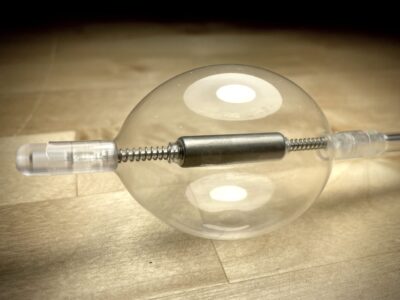After leading Harpoon Medical to a $100 million acquisition by Edwards Lifesciences last year, CEO Bill Niland and three other executives are now working on a fledgling medial device startup creating a minimally invasive treatment for degenerative disc disease in the lower back.
ReGelTec recently closed on $2 million in equity financing from TEDCO, the Abell Foundation and angel investors, Niland said.
The Baltimore-based startup is developing a gel that can be injected into the nucleus of a lumbar (or lower back) disc for patients who had surgery related to degenerative disc disease, Niland said. The spinal implants are designed to return spacing and height that is lost during surgery to the disc, when some of the nucleus is removed.
Since the gel is injected through a needle, surgery is not required for the follow-up procedure. The company’s product initially lights up on a sonogram, then a larger mass is formed that will stay in place in the disc. It’s over in about an hour.
The startup was founded at Drexel University, where CTO and Cofounder Anthony Lowman previously conducted research at a lab focused on polymers. Lowman is now dean of the college of engineering at Rowan University in Glassboro, New Jersey, where ReGelTec maintains a lab.
Based out of the Camden Yards warehouse in Baltimore, Niland and three other former leaders of Harpoon Medical are working toward clinical trials. Harpoon Medical was acquired last year by Edwards Lifesciences in a deal that could be worth up to $250 million. After consulting post-acquisition, the four leaders decided to work together on another startup, and Lowman was interested in spinning out the technology.
Niland, an inventor and longtime entrepreneur who also founded Vapotherm in Stevensville, said there’s a large need for the product, as 500,000 lumbar disc procedures are performed on an annual basis and three million Americans have degenerative disc disease. Plus, there are many more who previously received the surgery. The fact that the follow-up doesn’t require surgery could mean less time for patients out of work, and Niland also thinks it will be easy to train doctors to perform.
The startup proved attractive to previous Harpoon Medical investors. The Abell Foundation and angels who participated in the round were all former investors in the UMB spinout. So was TEDCO. Maryland’s quasi-governmental agency that supports early-stage companies was an investor in Harpoon Medical, which Director and CMO of TEDCO’s Maryland Venture Fund Parag Sheth called a “big win” for state. The fact that Niland and the team had experience was a key factor in TEDCO providing seed funding to ReGelTec, along with the size of the market.
“This is a team that has worked together. They steered Harpoon to success,” Sheth said.
Join the conversation!
Find news, events, jobs and people who share your interests on Technical.ly's open community Slack

Baltimore daily roundup: Medtech made in Baltimore; Sen. Sanders visits Morgan State; Humane Ai review debate

Baltimore daily roundup: An HBCU innovation champion's journey; Sen. Sanders visits Morgan State; Humane Ai review debate

Baltimore daily roundup: The city's new esports lab; a conference in Wilmington; GBC reports $4B of economic activity


